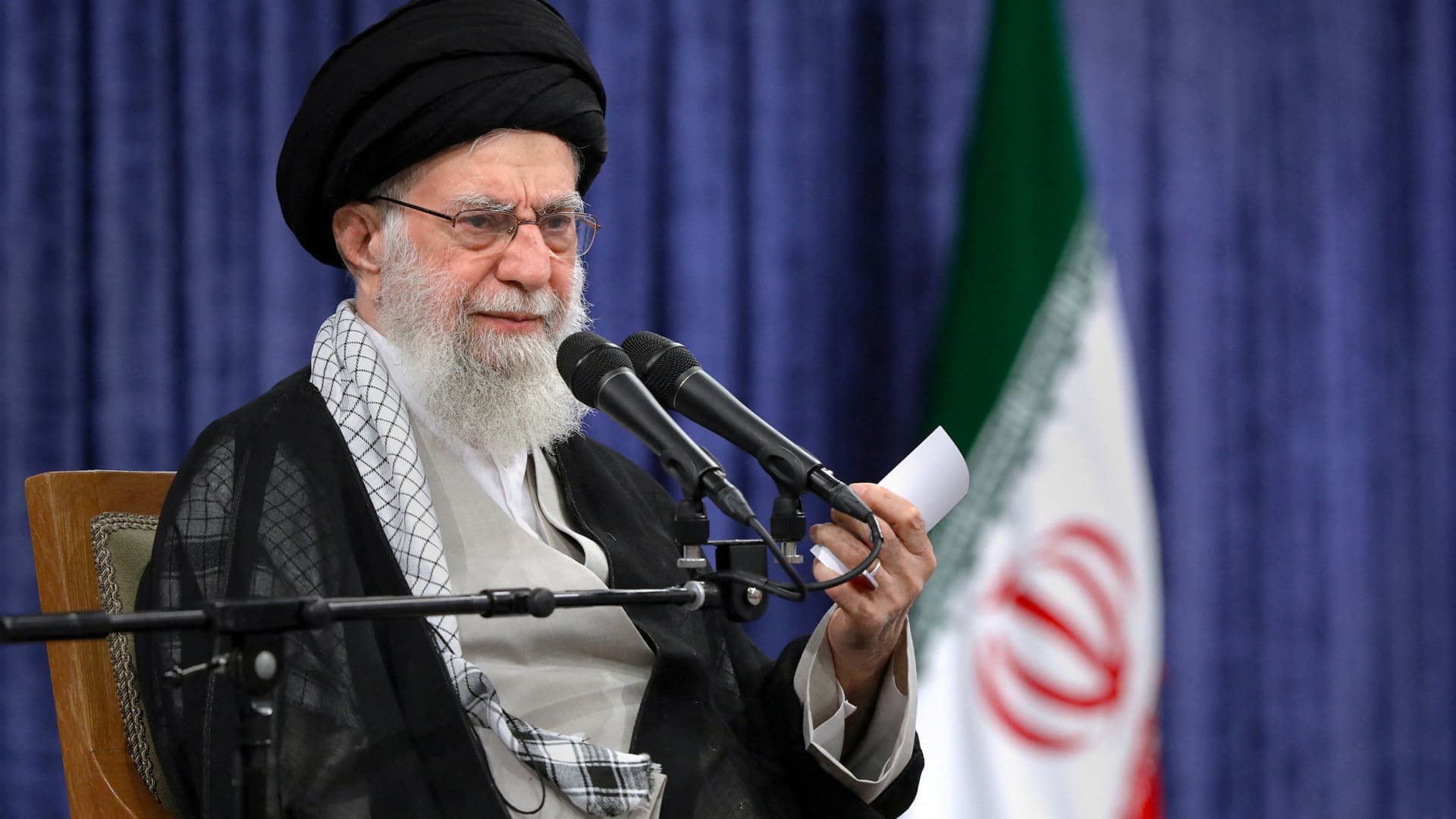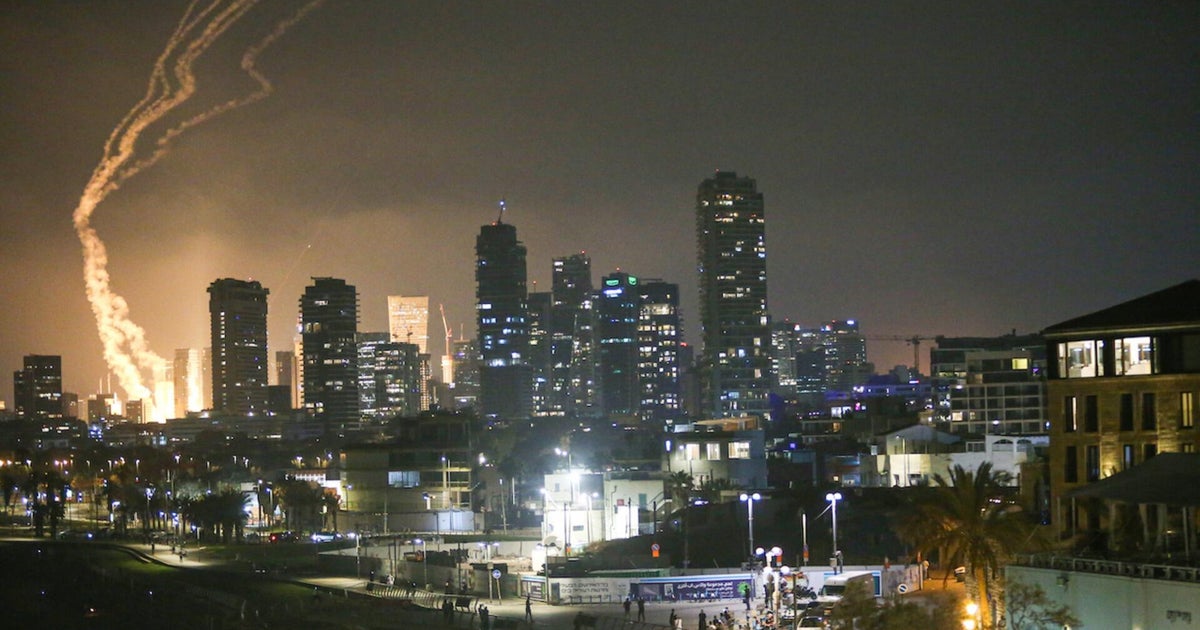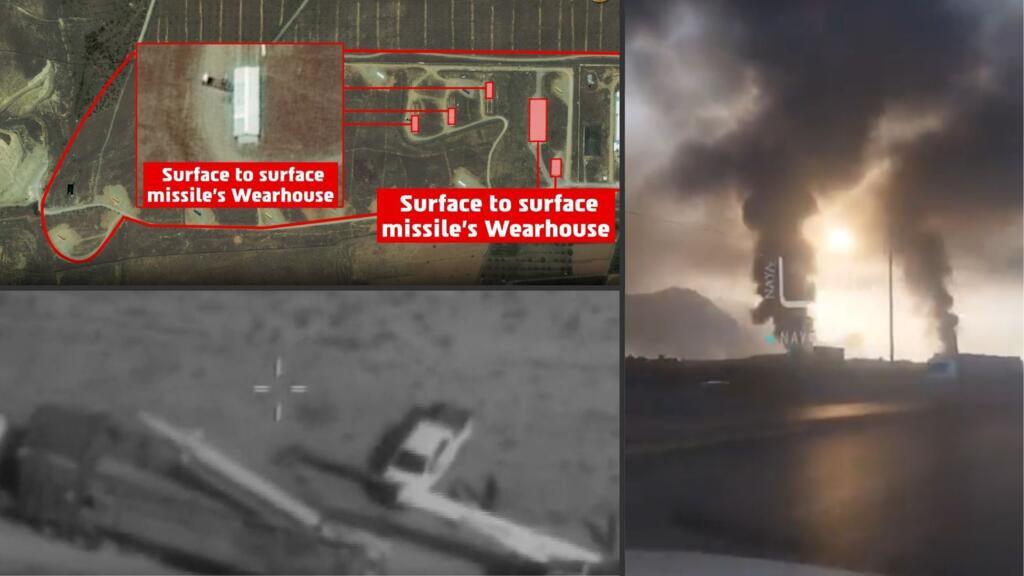Iran’s Supreme Leader Ayatollah Ali Khamenei speaks during a meeting in Tehran, Iran, May 20, 2025. Office of the Iranian Supreme Leader.
Office Of The Iranian Supreme Le | Via Reuters
Crude oil futures jumped as much as 13% Thursday evening after Israel launched airstrikes against Iran without U.S. support.
U.S. West Texas Intermediate was last up 8.23% at $73.65 per barrel, while global benchmark Brent surged 7.96% to $74.88 per barrel, setting them on course for their largest single-day gains since 2020.
Israel launched a “targeted military operation” against Iran’s nuclear and ballistic missile program, Israel Prime Minister Benjamin Netanyahu said in an address. Israel hit Iran’s main enrichment site at Natanz, its leading nuclear scientists, and struck the heart of its ballistic missile program, Netanyahu said.
“This operation will continue for as many days as it takes to remove this threat,” Netanyahu said.
U.S. Secretary of State Marco Rubio made clear that Israel had taken “unilateral action against Iran” without U.S. support. Rubio warned Iran against targeting U.S. interests.
“We are not involved in strikes against Iran and our top priority is protecting American forces in the region,” Rubio said in a statement. “Israel advised us that they believe this action was necessary for its self-defense.”

Oil prices year-to-date
Israel’s Defense Minister Israel Katz declared a special state of emergency in Israel in anticipation of Iran launching a missile and drone attack in retaliation.
Iranian state media also reported that Hossein Salami, Commander-in-Chief of Iran’s Revolutionary Guards Corps [IRGC] was killed in the strikes.
Oil markets are now concerned that Iran will retaliate by attacking either Israeli or American targets, leading to a major military escalation and a potential oil supply disruption, said Andy Lipow, president of Lipow Oil Associates.
I don’t think we’re looking at anything as severe as when Russia invaded Ukraine. It’s just not that significant a threat to oil supplies.
Ellen Wald
co-founder of Washington Ivy Advisors
“Iran knows full well that President Donald Trump is focused on lower energy prices,” Lipow told CNBC, adding that actions by Iran affecting Middle Eastern oil supplies and consequently raising gasoline and diesel prices for Americans are politically damaging to the U.S. president.
The oil markets have largely been shrugging off geopolitical risks for the last year, so these recent developments are a “wake-up call” that these risks are more “tangible and imminent” than many expect, said Saul Kavonic, head of energy research at MST Marquee.
“But the attacks will see some form of retaliation, which could easily – even if unintentionally – spiral out of control,” said Kavonic, who cautioned that Thursday’s airstrikes may also embolden hardline elements in Iran that see further escalation become more likely.
Iranian oil facilities not targeted
The rising Middle East tensions have raised concerns that Iran could use its control of the Strait of Hormuz as leverage, a key chokepoint through which one fifth of the world’s oil supply passes.
However, while the Israeli operation is more significant than what has been seen in a long time, there has been no direct targeting of Iranian oil production or export facilities, which means that Iran can continue exporting oil, said Ellen Wald, co-founder of Washington Ivy Advisors.
“For Iran, there really is no net benefit to trying to impede the passage of oil through the Strait of Hormuz,” Wald said, explaining that Iran will be retaliated against if it attempted to do so.
The probability of Iran being able to physically block the Strait of Hormuz is also debatable. While vessels do traverse through Iranian waters, they can still be diverted into UAE and Omani waters, Wald said. “While there would be a period of disruption, it’s not likely to last all that long.”
Additionally, Wald cautioned that a spike in oil prices from closing the Strait of Hormuz may bring about retaliation from Iran’s biggest oil customer: China.
“China does not want the flow of oil out of the Persian Gulf to be disrupted in any way, and China does not want the price of oil to rise. So they’re going to bring the full weight of their economic power to bear on Iran,” she added.
“I don’t think we’re looking at anything as severe as when Russia invaded Ukraine. It’s just not that significant a threat to oil supplies,” she said.
oil-prices-surge-after-israel-launches-airstrikes-against-iran














Leave a Reply